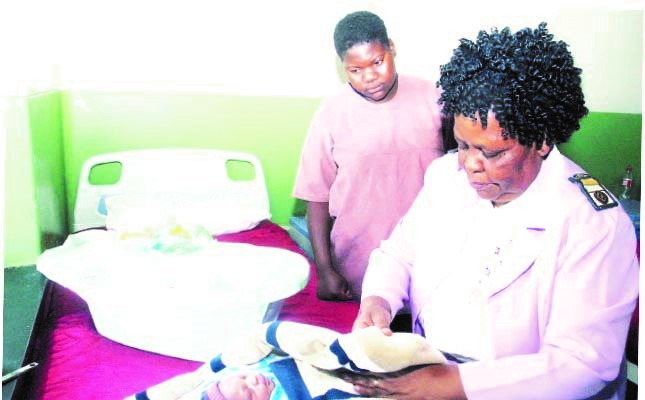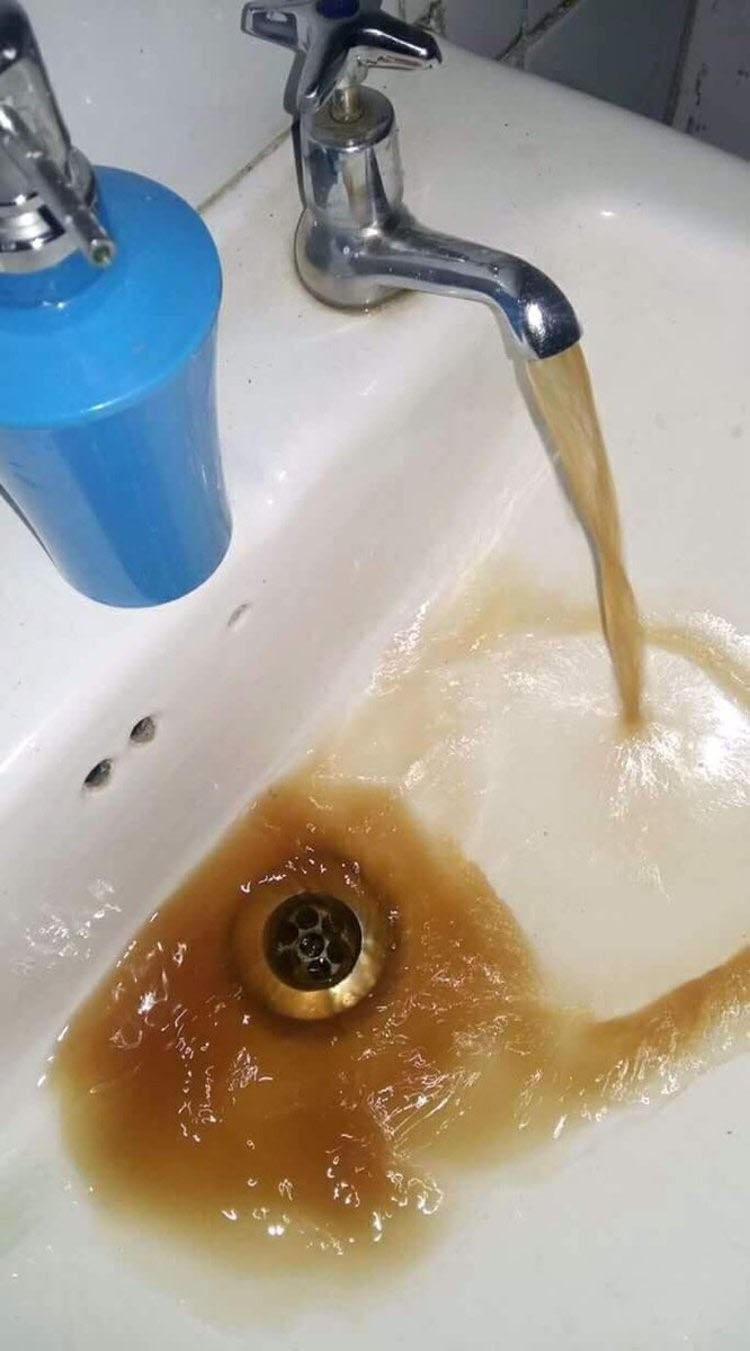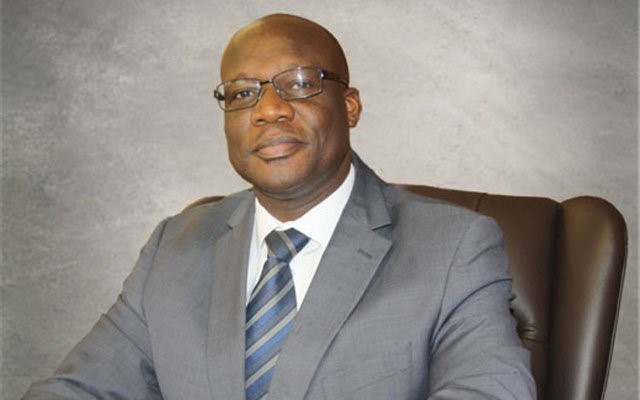Public Health Act (Amendment) Bill: Community participation crucial
Health ministry bemoans poor budget
HARARE – The health sector’s $520 million 2018 budget allocation remains too low, despite Finance minister Patrick Chinamasa having increased it from $454 million, Health minister David Parirenyatwa said.
He said there was a lot of damage, wear and tear at the hospitals that needs to be fixed.
“Our target was $1,1 billion, it’s still not sufficient if you look at the number of repairs that are needed in our hospitals, just as an example.
“Before I touch medicines, if you look at how many laundry machines countrywide have broken down, the X-Ray machines that need to be replaced, the laboratory equipment that need to be addressed. Parirenyatwa said.
“We cannot replace all the laundry machines in all the hospitals in one year; we need to phase it and all that needs a big budget, so that budget to me is insufficient.”
Zimbabwe’s hospitals have been crippled by lack of medicines and equipment, which has in the past resulted in the suspension of some surgical operations at some major hospitals.
In trying to solve the situation, government introduced a health tax on airtime to boost revenue collection for drugs and equipment procurement, which according to Parirenyatwa has so far fetched $22 million.
Community Working Group on Health executive director Itai Rusike said the revised budget allocations were not adequate to meet a lot of challenges and that it still fell below “the Abuja Target of 15 percent of national budget that should be allocated to the health ministry.
“Access to allocated funds has also remained an issue in previous years as a result of limited flows of funds into the fiscus and other issues to do with absorption of funds.
“However, the need to prioritise the health sector when funds are disbursed from the fiscus has to be emphasised with the ministry of Finance,” he said.
“Civil society organisations have advocated for a pro-poor budget and a budget that promotes the principles of primary health care while moving towards the realisation of universal health coverage. We have also advocated for budget policies that reflects the country’s commitments to the international laws, norms and commitments such as the Right to Health, the Abuja Target and the Sustainable Development Goals.”
Condoms, sanitary wear debate rages on
Health budget needs to prioritise prevention
Community Outreach Sensitization and Mobilization for the Public Health Act (Amendment) Bill Public Hearings-2018
Doctors’ strike mirrors lack of political will to address causes of perennial job action
Health fee scrapping brings relief

Pregnant mothers, children under five, and adults over 65 years are now exempt from medical fees
The year 2018 began with Government implementing remedial health policy as part of the 100-day economic stimulus plan to make health services accessible to all. Included in the plan is the scrapping of medical fees for infants, senior citizens, pregnant and nursing mothers and slashing the price of blood to $50 at State-run institutions.
The reprieve has been made possible by a more generous budgetary allocation from Treasury, which has brought relief to many in these times of economic hardships. Many have applauded and welcomed this move saying it will make health services accessible to vulnerable populations in line with global commitments on universal health coverage.
This remedial policy, though plausible, has been there since 1980 but had not been fully implemented due to shortages of funding. Executive director of Community Working Group on Health, Mr Itai Rusike, indicated that the recent user fee removal was an advancement of a policy formulated in 1980. The policy was encumbered by a number of weaknesses which Government must address with speed.
“In 1980 a policy of free health care for those on low incomes (below $150, $220)was introduced, and user fees were reduced as a financing source,” he said. “It seems the plan will now be put into action. The policy position on user fees has always been that those who can afford to pay for services should do so but those who cannot should be exempted,” he said.
“He noted that the policy was crippled by the prevailing unemployment rates. The swelling numbers have made the discretionary process of separating deserving persons difficult. Managing exemption from fees has been difficult and costly, with some consequent injustices in who was exempted,” said Rusike.
“In 1990, more emphasis was placed on fee collection although after evidence of high dropout from services, user fees in rural primary health care services were suspended in 1995. The Medical Service Act (1998) gave the Minister the authority to fix fee at Government and State aided hospitals,” said Mr Rusike. He said despite it being a helpful measure from the government, the policy of user fees was viewed as a hindrance to the nation because those who could afford better health standards ended up settling for the free services.
“The National Health Strategy for Zimbabwe 1997-2007 was aimed at free treatment for the majority but also stated that the policy of free health creates a disincentive for people to join medical insurance schemes.”
He added; “Poor people thus faced a variety of de facto barriers: the falling real value of threshold for free care, transport costs, private purchase of medicines due to drug stock-outs and poorly functioning exemption schemes. At the same time higher income earners obtained a number of tax funded public subsidies, including tax relief for medical insurance subscriptions and free services due to difficulties with determining earnings and a treat-first, pay later practice, he enlightened. Even though the policy adjusted in most urban centres, it has never changed in the rural areas.”
“Pregnant mothers, children under five, and adults over 65 years are exempt from fees up to district level but this has been mainly funded by development partners through the RBF funded by the World Bank and the Health Development Fund (HDF), a basket funded by multiple donors that pooled resources in an effort to achieve the complete removal of user fees for the above vulnerable groups.”
He said lack of funding hindered policy implementation, which if not sufficiently addressed can still affect today’s 100-day economic plan. The question has been how the implementation will differ with the old times? There have been concerns about how the government is going to fund the health institutions since the majority of the people are to get the free service? Are health standards going to remain the same under the reduced payments?
Government has assured the nation that there will be no hitches in services, instead sights are on improvements. Minister of Health and Child Care Dr David Parirenyatwa said resources were being mobilised to smoothen the implementation of the idea.
“We want to make sure that all health services are not only available, but also accessible to everyone. We have availed a subsidy of $4,2 million to the NBSZ (National Blood Service Zimbabwe) for them to meet some of the costs associated with blood collection and processing.” There is a budgetary allocation useful for this goal.
“Government is collecting at least $4 million every month from the cellphone levy, the majority of which is used to procure medicines. A five percent allowance is deducted from every $1 worth of airtime bought and is then channelled towards the Health Levy,” said Dr Parirenyatwa.
“Despite the anxiety around the new implementation matrix, hospitals have positively complied with the implementation for many patients have confirmed to the reality of this episode.
“We really appreciate the government’s efforts in making the health services accessible because many were failing to meet the hospital bills leading to a number of people dying,” said Charity Kanhanda, a patient at Parirenyatwa hospital.
“As women we acknowledge the love and appreciation the government has given us as mothers of the country since we are getting everything at maternity for free.” Many also applauded the government’s reduction of blood prices.
“We now have a good government with people at heart. We are so thankful that the government is fulfilling all its promises because I actually bought blood at $50, which is a better price than before,” said Brian Chimboza of Warren Park.
Stimulated by the nation’s response to the implementation, the Permanent Secretary for Health and Child Care, Dr Gerald Gwinji, commended the government’s effort considering the challenges it has been facing towards the implementation. He added; “The main challenge for implementation has been availing commodities and equipment in the face of low budgetary support. Some mechanism must pay for this service when it is eventually availed as free service to the categories of clients.”
“Fears on the implementation of the idea may not be around for long. We have over the years strategised and built support around care for children under five and pregnant women both from government and partners,” said Dr Gwinji. Key challenges which have been plaguing the idea are in the process of being ironed out.
“The main issues were around commodities and this has been largely addressed through various funding mechanisms. The Health Levy, dedicated to commodities like medicines and medical sundries has come in to further strengthening this position,” he said. Dr Gwinji comented on the government’s health budgets that had distressed some citizens considering the economic challenges the nation is facing.
“We have also had slightly better budgets this time around. Putting all this together we feel we have gone over the threshold where we really can support other clients with Assisted Medical Treatment Orders support.
“Going forward, the health financing policy, if fully supported, will create further opportunities for sustainable health care financing from diverse sources of revenue,” assured Dr Gwinji. Health care was one of the most discussed issues within the previous administration.
Concerns with access were raised on numerous occasions. This intervention is likely to bring reprieve to citizens who have been struggling to access health services because of financial constraints.
In extreme cases, hospitals detained new mothers until they had settled their maternity bills. Situations of that nature may be on their way out if the new policy is fully implemented for the benefit of pregnant women, children under five and senior citizens.
Paidamoyo Chipunza and Sheillah Mapani Features Writers
Harare faces lawsuit over poor water quality

Paidamoyo Chipunza Senior Health Reporter
Harare City Council faces a possible class lawsuit by residents who fear their health has been compromised by being forced to consume visibly contaminated water supplied to their homes by the local authority.
The residents, through the Harare Residents Trust (HRT), a non-profit organisation, have called for the immediate resignation of city officials in charge of water and councillors who exercise oversight over the portfolio for failure to protect their interests.
In an interview with The Herald yesterday, HRT director Mr Precious Shumba said local authorities had a legislative and constitutional duty to provide potable water to residents. He said failure by councillors to ensure residents got adequate supplies of clean water was unpardonable, calling for their immediate resignation.
“Their failure to ensure that residents get sufficient potable water means that they have failed to deliver and hence must not entertain hopes of being retained in their positions. They do not deserve to represent the ratepayers, because they lack an appreciation of what really satisfies the electorate,” said Mr Shumba.
HRT, he said, had prepared submissions that it will take to the Parliamentary Portfolio Committee on Local Government, Public Works and National Housing, including ministries responsible for public health, water and sanitation, to express ratepayers’ displeasure with council’s performance. Mr Shumba urged residents to collect samples of tap water for testing as part of evidence-gathering to be used to sue Harare City Council.
“We are urging residents to take samples of their municipal tap water for tests with the Standards Association of Zimbabwe (SAZ)so that there is evidence of the water status, which we shall be using to sue the City of Harare if it is established that their water has negative implications on people’s health,” said Mr Shumba.
It is however, believed that prosecuting HCC without amending the relevant law will be difficult. Community Working Group on Health (CWGH) executive director Mr Itai Rusike urged the Ministry of Health and Child Care to finalise revision of the Public Health Act, which he said had loopholes that make it difficult to prosecute local authorities for giving residents dirty water.
CWGH is a community-based organisation formed in early 1998 to lobby on health issues. Through the envisaged amended Act, the Ministry of Health and Child Care wants to make it an offence to fail to provide clean water and sanitation to the public.
“There are a number of problems in the environments of health in the capital city, Harare. Unreliable water supplies, prolonged water cuts, uncollected garbage — all lead to unsafe alternatives, which are detrimental to health,” said Mr Rusike.
He said increased cases of diarrhoeal diseases in the capital relative to other cities were clear evidence that the general uncleanliness of the water and the environment in Harare were taking a toll on residents’ health.
“Clean water supplies and environment conditions underlie many of the health problems in Harare and they should be dealt with with the seriousness they deserve.”
Recently, HCC Mayor Councillor Manyenyeni attributed the inadequate water supplies to a shortage of treatment chemicals such as aluminium sulphate, sulphuric acid, HTH Chlorine and activated carbon. He noted that foreign currency shortages are making it difficult to import the critical chemicals.
Statistics from the Ministry of Health and Child Care, Harare tops other cities and towns on diarrhoeal diseases in the country, and this is attributed to inadequate water supplies and poor sanitation facilities. Last year, the city struggled to contain a typhoid outbreak that emanated from Mbare and later spread to other high-density suburbs.
Paidamoyo Chipunza Senior Health Reporter January 6, 2018
Govt to subsidise healthcare for the vulnerable

Government will use the Health Levy, which has so far received $22 million, to supply vital medicines and medical sundries required by health institutions to implement the free user-fee policy for vulnerable groups, Health and Child Care Secretary Dr Gerald Gwinji has said.
The Health Levy is money realised from a 10 percent cellphone levy deducted from every $1 worth of airtime which was introduced by Treasury last year, half of which is channelled towards health.
Responding to questions on Government’s source of funding for a successful free user-fee policy, which has been in existence since 1980 but was not being implemented due to inadequate funding by Government for health institutions, Dr Gwinji said medicines and medical sundries consume the bulk of institutions’ budgets.
He said a mechanism was required to meet costs of medical care for the elderly, children under five years of age and pregnant women following a recent directive by his ministry to all institutions to ensure that patients in these categories did not pay for basic health care.
“The main challenge for implementation has been availing commodities and equipment in the face of low budgetary support. It is true that some mechanism must pay for this service when it is eventually availed as free service to the identified patients,” said Dr Gwinji.
Dr Gwinji said Government, together with its partners, had over the years strategised and built support for the care of children under five years and pregnant women. He said the main issues in addressing these challenges had always been provision of medical commodities.
“The Health Levy, dedicated to commodities like medicines and surgical sundries, has come in to further strengthen this position,” said Dr Gwinji.
He said this year, the health sector also got a better budgetary allocation compared to previous years, which he said would enable the free user-fee policy to become a reality.
“Putting all this together, we feel we have gone over the threshhold where we really can support the categories (the elderly, pregnant women and children under five) with access to service as per Government policy,” he said.
Medicines, vaccines and other consumables worth over $11 million have already been ordered. Dr Gwinji said Government would however continue to advocate for adequate funding for social welfare to enable the health sector to effectively assist other patients outside these categories but were unable to meet the costs of medical care.
Dr Gwinji said going forward, if the current health financing policy was supported, it could create further opportunities for sustainable health care financing through diverse sources of revenue spelt out in the policy. The health financing policy gave birth to cellphone taxation and has other suggestions for mobilisation of domestic financial resources.
Health institutions contacted for comment on the scrapping of the user-fee policy said they had already effected the directive. Harare Central Hospital chief executive officer Mrs Peggy Zvavamwe said: “So far, everything is going on well and we have been assured that we will also get extra allocations to cover costs of these identified patients, who are no longer paying for medical care.”
She concurred with Dr Gwinji that medicines and medical sundries consumed the bulk of their budgets and that should Government meet these costs for the vulnerable groups, the burden would be lighter for health institution in the country. Community Working Group of Health executive director Mr Itai Rusike said while the free user-fee policy had always been in place, its implementation got mixed at various levels of care.
He said in some instances, patients would receive free consultation fees but would have to pay for medicines or other required services. Mr Rusike implored Government to increase funding for health including grants, for the country to effectively implement its policies.





